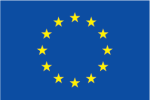In February, the REWARD/EQUATOR 2020 conference took place in Berlin, bringing together several stakeholders from different countries to discuss strategies for improving research. The conference was exceptional, a wide range of stakeholders including representatives of institutions, committees, funding agencies, young and senior researchers were involved in discussions to identify their roles and responsibilities in fostering research integrity.
The role of early career researchers marked several discussions and it was in the center of most of the presentations. An eye catching presentation regarding the education in research integrity was about bottom-up initiatives that have been developed by young researchers in order to involve the local academic community in the discussion and change the research integrity climate.


Leave a Reply